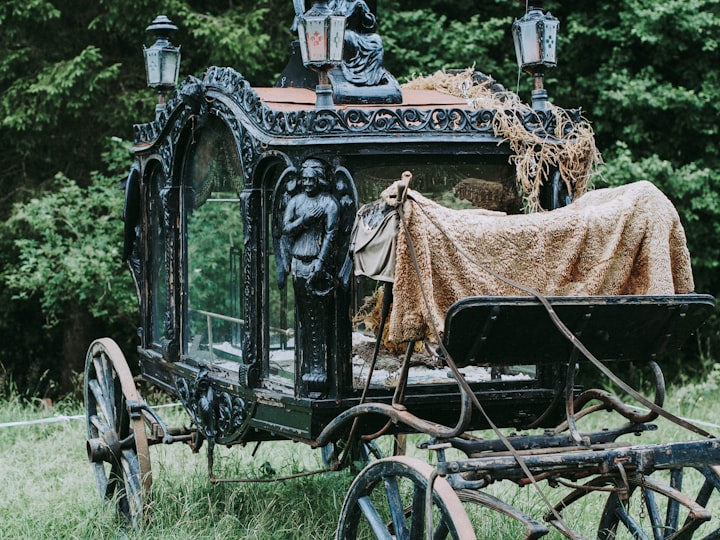W.O.K.E. W.O.C. - a VENUS VALLEY chapter
Queer Philosophers’ Forum, pt. 12

Yet again a chapter has seen fit to add itself to my book-in-progress, as something I alluded to last time deserves more space of its own. Welcome, if you’ve just joined in, to the chapter-by-chapter release of my LGBTQIA+ centric philosophy-(hopefully)-made-easy book; in which your inputs, insights and comments become my edits as you take up my invitation to freely debate discuss, question, contribute, so your values, views and voices can be part of the finished book when it emerges in physical form. After too long of a break because life stuff keeps happening (it’s good stuff, it just takes up a lot of time!) welcome back, queerly beloveds, to Venus Valley: Queer Philosophers’ Forum.
This time, we’re going W.O.K.E. - by which, of course, I mean Women Of Knowledge & Experience!
This chapter will mostly be free of me pontificating or point making, since I want to give the women we’re about to focus on, the space to speak for themselves that they deserve. But I’ve structured the chapter to show the web of connections and relationships by which their influence and inspiration came into my life, as they impacted and connected with each other’s lives.
The first link in the chain is Maya Angelou. When she spoke out against her abuser asa young girl, he was killed in retribution, and so she stopped using her voice at all, for fear that it killed him; until, when she showed a love of poetry at school, her teacher told her she could only truly love poetry by speaking it. From then on she never stopped telling her own story, taking her pen name Maya from the way her brother said “my sister” when they were kids. She worked with Martin Luther King organising events and was a close friend of Malcolm X. We’ll get back to them later. First, Ms. Angelou has something to say. Rather than any of the scores of motivational quotes from her that pepper the internet, I’ve singled out some of her most challenging questions for us to answer - or, as we’re here to philosophise, we could at least think about the answers!
"Do you dare to look at the hurt and find a way to heal it, rather than perpetuate it?"
“Can you find the courage to love yourself despite your flaws and imperfections?"
"What would happen if we embraced our differences instead of fearing them?"
"Are you willing to step out of your comfort zone and embrace the unknown?"
"How can you use your voice to speak up for those who have been silenced?"
"What would the world look like if we treated every human being with kindness and respect?"
"Are you willing to confront the injustices that exist in society and work towards creating a more equitable world?"
"What legacy do you want to leave behind and how are you actively working towards it?"
"Can you find forgiveness in your heart, even for those who have wronged you?"
"What steps can you take today to bring about positive change in your own life and in the world?"
Maya played a supporting actress role in Roots in 1977 - the groundbreaking TV series paralleling the civil rights struggle with the abolition of the slave trade, written by Alex Haley, the biographer of Malcolm X. More about both men in a minute, but first back to Ms. Angelou! She also starred on stage, in the daringly-progressive-for-it’s-time-but-problematically-dated-for-today musical Porgy & Bess. Which brings us to our next link in the chain, who got her big screen debut as a singer and dancer in the movie of P & B: Nichelle Nichols. She almost quit her famous role as Lt. Uhura in Star Trek, until two fans convinced her she was making history and changing lives, just by being a black woman in a role that wasn’t a “black woman’s role”, working alongside white men as equals. Those fans were Martin Luther King and his wife Coretta. Instead of quitting, she used her star power - having already inspired Whoopi Goldberg to become an actress - to recruit black women into real life careers in space exploration. Dr. Mae Jemison, the first black woman sent into space by NASA, met Nichelle in person when she played a cameo as an engineer in Star Trek: The Next Generation, alongside Whoopi Goldberg and our second member of the cast of Roots, Levar Burton - who uses his own star power to encourage children to read, and especially to read banned books. Before she passed recently, Nichelle had some questions for us too:
"What is the legacy you want to leave behind? How are you actively working towards it?"
"Are you willing to use your platform and voice to advocate for causes you believe in?"
"How can we create a society that celebrates and embraces diversity rather than fearing it?"
"What would happen if we challenged the limitations placed upon us by society and believed in our own potential?"
"Are you willing to be a catalyst for change and fight for equality and justice?"
"What steps can we take to ensure that future generations have a better world to inherit?"
"How can we break free from stereotypes and embrace the full range of our humanity?"
"Are you willing to lend a helping hand to those in need, even if it's outside of your comfort zone?"
"What would the world look like if we listened to and respected the perspectives of others, even when they differ from our own?"
"How can we harness the power of imagination and creativity to envision a better future for all?"
And Dr. Mae wasn’t quiet in asking these kinds of questions either:
"What would it look like if we approached problem-solving with a truly global mindset, drawing on diverse perspectives and experiences?"
"If you knew you couldn't fail, what would you attempt to accomplish?"
"How can we challenge our assumptions and expand our understanding of what's possible?"
"What can we learn from nature and the universe around us to solve the challenges we face as a society?"
"What would happen if we focused on nurturing creativity and imagination in our education systems?"
"How can we leverage technology and innovation to create a more equitable and sustainable future?"
"What would a world without boundaries and limitations look like, and how can we work towards achieving it?"
"What stories and perspectives are missing from our collective narrative, and how can we amplify those voices?"
"How can we ensure that everyone has access to quality education and opportunities to pursue their passions?"
"What steps can we take today to shape a better tomorrow for future generations?"
When he wasn’t busy watching Star Trek, Reverend Doctor Martin Luther King Jr. was busy being a leader of the pacifist political side of the civil rights struggle. At his side was a gay man, Bayard Rustin (though King kept his distance from Bayard’s reputation for being a Communist supporter of Russia - when, in fact, Bayard was a Zionist supporter of Israel). At a time when homosexuality was classed as a crime and a mental illness, he argued that even so, homosexuals should be “helped not hated.”
On the militant side of the struggle, the man who identified as Malcolm X - though others tried to call him Malcolm Little, Malik el-Shabbaz, or Detroit Red - while in prison for trading in sex and drugs, having been left feeling like he had no other options in life, was recruited by the separatist black supremacists (and believers in the antisemitic conspiracy tome, The Protocols of the Elders of Zion) The Nation of Islam. X, with the help of Alex Haley - co-writer of X’s autobiography, and creator of Roots - told the story of how he eventually replaced his commitment to these supposed Prophets, by embracing grass roots Islam, thanks to the inspiring sight, while on the traditional pilgrimage to Mecca, of men and women of all colours taking the journey side by side. Recently, researchers Manning Marable and Christopher Phelps have asked if he might’ve been bisexual; they call the idea of “straight trade”, as they called it in his day - heterosexual men open-minded to sex with homosexuals - “An insight into the Black Revolutionary’s mature masculinity”. His surviving family deny it, saying that he would never have felt the need to hide or deny it if it was true. Malcolm appeared as a character in Roots: The Next Generations in 1979.
On the queer side of the same struggle - and if you take any of my personal philosophical viewpoints from this chapter, let it be this: most political struggles have a queer side! - were the drag kings and queens of New York’s Stonewall Inn. Hands tied by new laws against segregation, police found new ways to harass black citizens by targeting the openly queer. They had the bad luck to raid a queer joint that happened to be owned by the mafia, the day after iconic queer ally Judy Garland’s funeral (more about her in a couple of chapters’ time!) and a new civil rights fight began as the Kings and Queens inside - still in full costume - came out and pushed back. Who exactly “threw the first brick”, or even what exactly the sexualities and gender identities of the uprisers were, depends on who you ask and how close they were to the event; but the queens of the liberation movement that followed - forerunner of today’s Pride parades - were undoubtedly Sylvia Rivera, Stormé de Larverie, and Marsha “Pay It No Mind” Johnson. And a lot of their questions still stand. I’ll let Marsha kick us off:
"How many years does it take for people to see that we're all brothers and sisters and human beings in the human race?"
"Why are we not looking at the root causes of poverty and oppression?"
"What will it take for society to recognize the humanity and worth of transgender and gender non-conforming individuals?"
"When will we realize that love is love, regardless of gender, and that it should be celebrated and protected?"
"Why do we continue to deny basic human rights to those who don't fit into society's narrow definitions of 'normal'?"
"What does it say about our society when violence against the LGBTQ+ community is still so prevalent?"
"When will we stop allowing fear and ignorance to dictate our treatment of marginalized communities?"
"Why do we persist in perpetuating harmful stereotypes instead of embracing the diversity and beauty of all individuals?"
Sylvia, you take it from here:
"Why are we more concerned with fitting into society's boxes than creating a world where everyone can truly be themselves?"
"When will we acknowledge that the fight for LGBTQ+ rights is not over, and that we have to keep pushing for justice?"
"Why do we continue to prioritize profit over the well-being and dignity of marginalized communities?"
"What will it take for society to recognize that gender is not binary and that people deserve the freedom to express their true selves?"
"When will we stop allowing politicians and institutions to divide us, and instead unite to challenge the systems that oppress us?"
"Why are we so quick to dismiss the experiences and struggles of transgender and gender non-conforming individuals?"
"What does it say about our society when homelessness and poverty disproportionately affect LGBTQ+ youth?"
"When will we realize that true liberation cannot be achieved until we dismantle all forms of oppression, including racism, sexism, and homophobia?"
And Stormé, you bring it home:
"Why should I be ashamed of who I am when society is the one that needs to change?"
"When will we realize that our struggles for liberation are interconnected and that we must stand together?"
"Why do we allow fear to hold us back from embracing our true selves and fighting for our rights?"
"What does it say about our society when violence against queer and transgender individuals is met with silence?"
"When will we stop waiting for permission to exist and demand the respect and equality we deserve?"
"Why do we continue to perpetuate harmful stereotypes instead of celebrating the diversity within our community?"
"What will it take for society to recognize that love knows no boundaries and that we all deserve to be loved and accepted?"
"When will we realize that our existence is resistance and that we have the power to change the world?"
The UK’s anti-homophobia activism charity Stonewall took its name in honour of their fight, to launch in the 1980s with a campaign against the Conservative UK government’s Section 28 proposal to criminalise anyone trying to promote and normalise gay equality, especially parents and teachers sharing the facts of it with kids. Sadly they’re most in the news lately for the fact that their shift to include transphobia in their list of issues that need sorting, led to the breakaway of a group now calling itself the LGB Alliance - classed as a hate group in Ireland and Australia, and listing their UK address as 55 Tufton Street, an office block notorious for renting out space to conspiracy theorists, science deniers, and corrupt government lobbyists. The less said about them, the better; but while we’re asking tough questions, I’d like to know why, if they supposedly exist for the sake of lesbian, gay and bisexual people, they didn’t join in the fight for marriage equality, or for the banning of “conversion therapy” (A supposed “cure” for socially rejected sexualities and gender identities)? And why do they seem so comfortable with their members using the same rhetoric against trans people today, as was used against lesbians and drag queens trying to join in the struggle back in the days of the original Stonewall uprising?
Two of the loudest voices, on social media and beyond, against that kind of bias and prejudice today, are proudly transgender actress and activist Laverne Cox in the US, and proudly asexual fashion model and activist Yasmin Benoit in the UK.
Laverne Cox rose from a dance student paying her way through tuition as a waitress and drag queen, to reality TV show star, to award winning actress, famous for not putting up with invasive and inappropriate question about sex or gender from interviewers and journalists. And she made the short A Trans History: Time Marches Forward & So Do We, with the American Civil Liberties Union, showing what led up to the Stonewall uprising and what followed, which you can watch by clicking HERE. I don’t have the same kind of questioning quotes from her, but I do have her shutdown of the wrong kinds of questions, from her appearance on the talk show Katie in 2014:
“I do feel there is a preoccupation with that. The preoccupation with transition and surgery objectifies trans people. And then we don't get to really deal with the real lived experiences. The reality of trans people's lives is that so often we are targets of violence. We experience discrimination disproportionately to the rest of the community. Our unemployment rate is twice the national average; if you are a trans person of color, that rate is four times the national average. The homicide rate is highest among trans women. If we focus on transition, we don't actually get to talk about those things.”
Meanwhile in the UK Yasmin Benoit, a model, of Trinidadian, Jamaican and Barbadian descent, is using the attention she’s been getting on social media since proudly and loudly coming out as asexual, to work with the charity Stonewall to produce The Ace In The UK Report 2023, showing the extra obstacles ace people face accessing housing and healthcare. Quotes from those who took part in the report, including Ms. Benoit herself, definitely raise a lot of questions of their own.
“I want to get to the point where we don’t need to raise awareness because it doesn’t need to be seen as brave. It shouldn’t be. It’s the way that we naturally are. But at the moment it’s seen like a big deal.”
“I’ve done many various different jobs and in very different industries, but in every workplace, being open about my asexuality was never my choice. It was always forced out of me because colleagues just insisted that they had to know. They would not stop.”
“The ace community deserves legal recognition. We deserve protection. We deserve acceptance, and we deserve to be heard. It’s time that the world paid attention.”
You can read the full report yourself by clicking HERE.
~*~
This has been a long one so thank you for staying all this way! I didn’t want to shorten it any more than I already had, or I felt like I’d be robbing these voices of the chance to be heard that they deserve. The next chapter’s a fun one - all about how those I like to call The Straight White Rich Right (TM) hold up someone and something as a cornerstone of their class and culture, that, if they actually bothered to look even a little closely, they’d realise was actually queer as heck.
~*~
To subscribe so you don’t miss that and other new chapters as they come, click HERE;
To join the group on the book of faces where you can join in with us as we debate, discuss, question and contribute, click HERE;
And if you’re feeling generous enough to make a donation whether big or small to support this blog becoming a book, thank you so much in advance for clicking HERE.
~*~
About the Creator
Mx. Stevie (or Stephen) Cole
Genderfluid
Socialist
Actor/actress
Tarot reader
Attracted to magic both practical & impractical
Writer of short stories and philosophical musings
Reader insights
Outstanding
Excellent work. Looking forward to reading more!
Top insights
Compelling and original writing
Creative use of language & vocab
Easy to read and follow
Well-structured & engaging content
Expert insights and opinions
Arguments were carefully researched and presented
Heartfelt and relatable
The story invoked strong personal emotions
On-point and relevant
Writing reflected the title & theme






Comments (1)
You've included a number of my personal heroes here & introduced me to a few more. Thank you for this. It may have seemed long to you, but every bit of it has been uplifting to me.